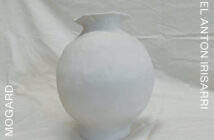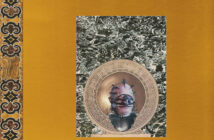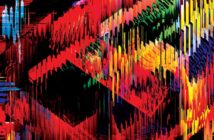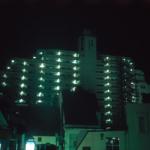
Felix Kubin, long a stick in the spokes of the mundane, manages to flip the script once more and deliver a distinctly wrong-footed move in a career that has specialised in just that. Although being credited predominantly on Echohaus, Kubin could be described as composer and producer, rather than a player in this scene. Hamburg-based Ensemble Integrales descended into the bowels of Westwerk, once a squat and cultural nexus for left-field arts, now the recording studios of “underground pop producer” Tobias Levin. The details of the recording process are rather fascinating, and do add a further layer to the understanding and appreciation of Echohaus. The Ensemble, led by Burkhard Friedrich and Barbara Lüneburg, were recorded in separate rooms, connected only by headphones. The acoustic temperament of the room added the degree of echo in the haus, so to speak. Often seemingly drenched in reverb, no effects or reverb was added to the recording post-production.
The cover of this release features a nighttime shot of what I assume must be the Westwerk building. It’s very reminiscent of that brutalist piece of public housing found on Victoria Rd, in the Sydney suburb of Gladesville – Blandville Court (never has a block of flats been bestowed with such an appropriate moniker). And there are further parallels to Echohaus in Blandville. Vignettes and moods slide by, the album doesn’t really go anywhere, preferring a sombre mood to an exciting dynamic journey for the senses. Kubin’s trademark lightness of touch and “space-age” pop from previous releases is certainly absent from der Echohaus.
As an introduction to the album, “Uncanny Valley’s” creak and thump of disconnected musicians and dusty Intonarumori, flag that Echohaus maybe shouldn’t feature Kubin’s name so predominantly in the title. Rather appropriately, further on, “Nachtschicht (Night shift)”, features mournful strings, hanging chords and simple piano motifs, like a cross between Morton Feldman and Jan Jelinek, this is night music for ghosts and insects. There’s not much going on in “Zerschlage mein Herz, dreifaltiger Gott” other than delicate, high-pitched bowed violin, a deep rumbling spasmodic bass and badly timed rimshots, yet it would make a fantastic soundtrack to a forgotten silent horror classic.
Central piece “Schwarzer Fluss” starts in a flurry of keys, creaks and percussion. It flits through numerous creepy varieties of chamber music where extended techniques ramp up the tension inexorably, kind of like Kubin contemporary Marcus Schmickler’s use of the Shepard tone on his latest album. The paranoia-inducing conclusion is reached via radio static, abased pianos and screeching orchestration. The remainder of Echohaus manages the odd serene moments in between the glowering soundscapes and chattering instrumentation. For the most part Echohaus is a descent into the underworld for Kubin and his companions, whereas previously the composer has preferred to orbit above the earth, somewhere in the stratosphere.
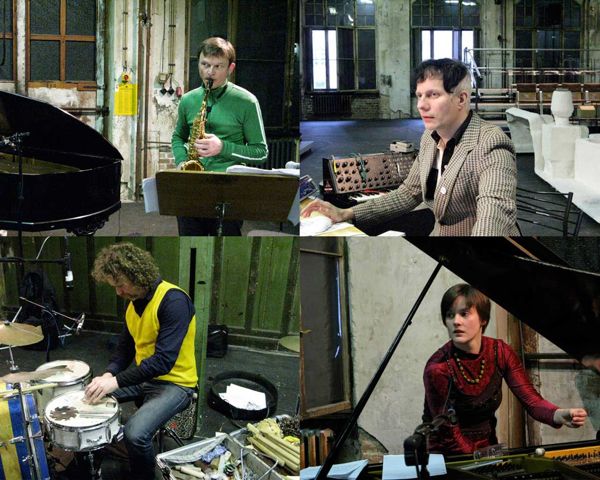
The making of Echohaus, note Felix Kubin's space-age hairstyle
Oliver Laing

